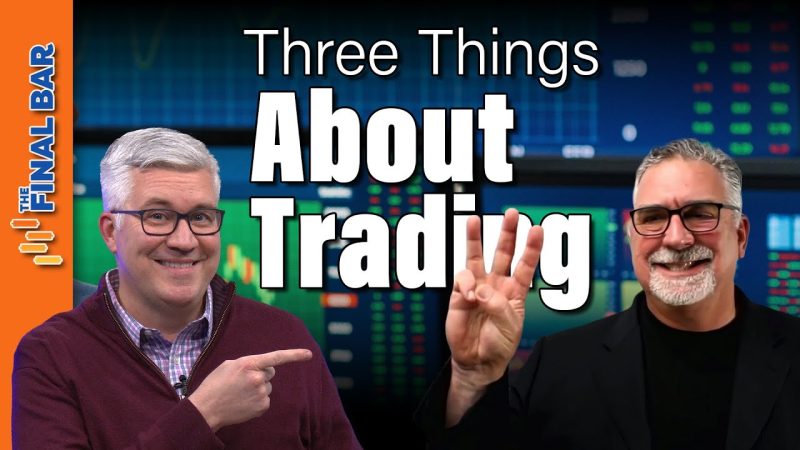Body:
1. The Importance of Risk Management in Trading
One of the first lessons I wish I had known about trading is the crucial role risk management plays in one’s success. As enticing as the potential profits may seem, trading is not a guaranteed way to make money. It involves a substantial level of risk, and understanding and managing that risk is paramount.
To effectively manage risk, traders should establish a clear strategy that includes determining their risk tolerance, setting stop-loss orders, and diversifying their portfolio. Risk tolerance refers to the amount of risk a trader is comfortable taking on and losing. By identifying their risk tolerance, traders can set appropriate position sizes and avoid emotional decision-making based on short-term market fluctuations.
Stop-loss orders are another essential tool for managing risk. These orders automatically close a trade once it reaches a predetermined price level, limiting potential losses. Setting stop-loss orders not only helps protect capital but also allows traders to minimize emotional decision-making and stick to their trading plan.
Finally, diversifying one’s portfolio is crucial in risk management. Putting all of one’s capital into a single trade or asset carries a high level of risk. By diversifying across various trades, assets, and markets, traders can balance the potential for profits with potential losses, mitigating the impact of any single investment.
2. The Role of Emotional Control in Trading
Emotional control is another factor that can significantly impact trading outcomes. When I first started trading, I overlooked the psychological aspect of the game and how emotions can influence decision-making and ultimately lead to losses.
Greed and fear are the two most common emotions that can negatively impact trading. Greed often leads traders to take excessive risks and neglect proper risk management strategies, hoping for larger profits. Fear, on the other hand, can prompt traders to exit trades prematurely or miss out on potential profit opportunities.
Developing emotional control involves being aware of these emotions and implementing strategies to overcome them. One effective technique is to follow a trading plan diligently. By outlining specific entry and exit points and sticking to them, traders can reduce the influence of emotions and make rational decisions based on their analysis and strategy.
Additionally, practicing mindfulness and staying present in the moment can help traders avoid impulsive decisions driven by emotions. Taking breaks from the screen, engaging in relaxation techniques, and maintaining a healthy work-life balance can also contribute to emotional control and overall trading success.
3. Continuous Learning and Adaptation
Lastly, I wish I had understood the importance of continuous learning and adaptation in the trading world. The financial markets are dynamic and constantly evolving, making it crucial for traders to stay up to date with the latest trends, strategies, and technologies.
Keeping abreast of market news, studying various trading techniques, and regularly analyzing one’s trading performance are all essential parts of continuous learning. This process enables traders to identify areas for improvement, refine their strategies, and adapt to changing market conditions.
Furthermore, staying connected with fellow traders and participating in trading communities can provide invaluable insights and support. Engaging in discussions, sharing experiences, and asking questions can foster the exchange of knowledge and help traders stay motivated and accountable.
In conclusion, trading is not a simple endeavor, and there are several key aspects that I wish I had known when I first started. Understanding the importance of risk management, emotional control, and continuous learning can significantly enhance one’s trading journey. By embracing these principles, traders can increase their chances of success and navigate the unpredictable nature of the financial markets more effectively.
